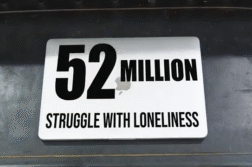ORLANDO, Fla. (Ivanhoe Newswire) –Every minute in the United States, 20 people suffer physical violence at the hands of a loved one. Over ten million Americans are physically and emotionally abused by the people they love and trust. How do you get yourself or someone you love out of toxic relationships? And how do you stay out?
From the outside, Mary Mitchell seemed to have it all. Beautiful home, great job, loving relationship. But Mary felt like she was hiding behind a mask. “I felt depressed, and I felt like a liar because people thought that I had a perfect life” Mitchell told Ivanhoe.
Mary’s seven year marriage ended and she started a new relationship, but soon after, her partner became physically and verbally abusive. “It’s easier to have a bruised heel or a broken bone heal than it is to unhear things” Mitchell told Ivanhoe.
Janie Lacy has walked a path familiar to many women. Her world was rocked by domestic violence. “My sister, Carmen, she was murdered at the age of 19 by the father of her two children” Lacy said. She turned her grief into action. She earned her master’s degree in counseling psychology and became a licensed therapist. Five years ago, she started the group woman redeemed for women with a history of toxic relationships. The masks some create are therapeutic. “How she really feels about and how she really sees herself is in contradiction to how other people see her” Lacy explains.
She counsels her clients to begin with a 90-day detox from their troubled relationship. She says days 14 through 21 are when clients are most vulnerable and most likely to reach out to their former significant other. “If we could get them through those 90 days and subside those efforts then we can start reprogramming their brain” Lacy said. Also, a support system of friends and family is essential. “She needs to understand that she’s not alone.”
If a friend or loved one is in a toxic relationship , Lacy advises people to not back away, but be quietly present–send a text saying ‘thinking of you’ to let that person know that you are there and they can open up to you. If you need help or want information for a friend, call the national domestic violence hotline at 1-800-799-7233. Or log on to www.thehotline.org/
Sources:
https://www.mentalhelp.net/aware/physically-and-emotionally-abusive-relationships/
Contributor(s) to this news report include: Cyndy McGrath, Executive Producer; Keon Broadnax, Assistant Producer; Roque Correa, Videographer, and Jonathan Hedman, Editor.
To receive a free weekly email on Smart Living from Ivanhoe, sign up at: http://www.ivanhoe.com/ftk



